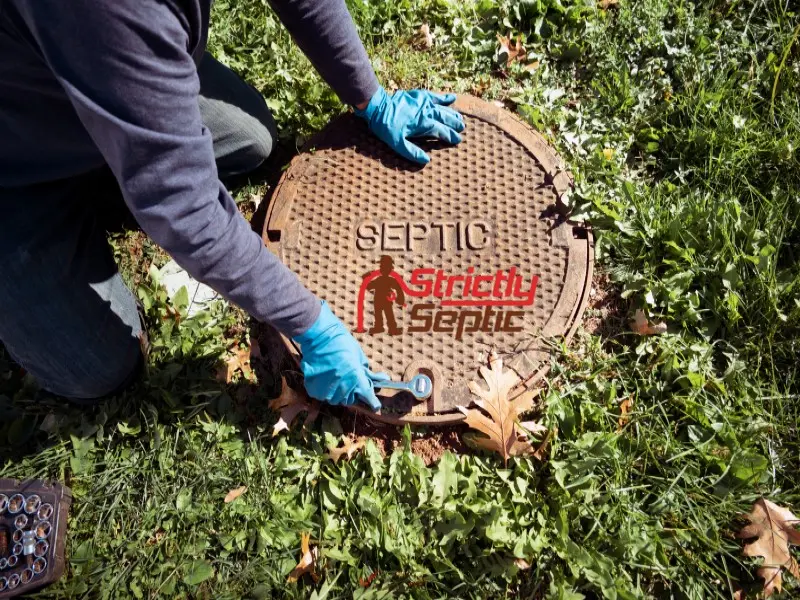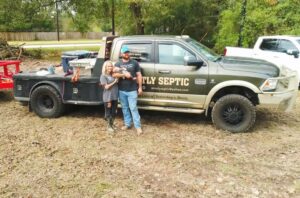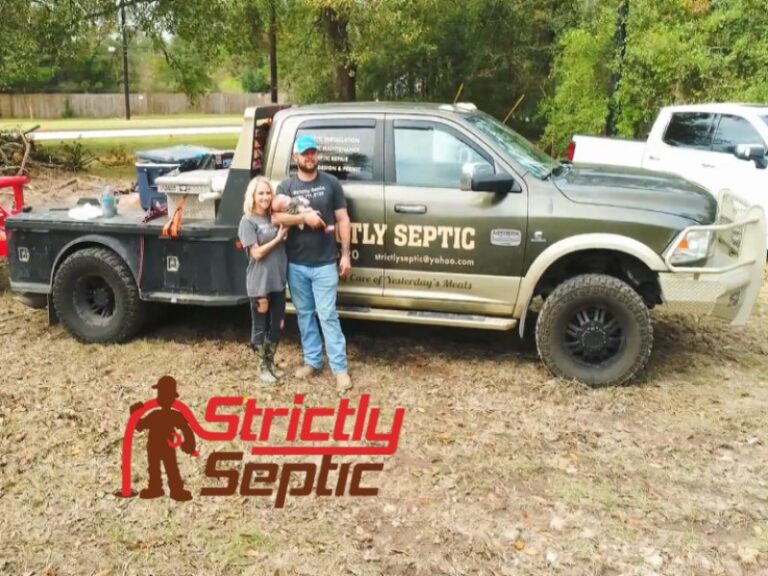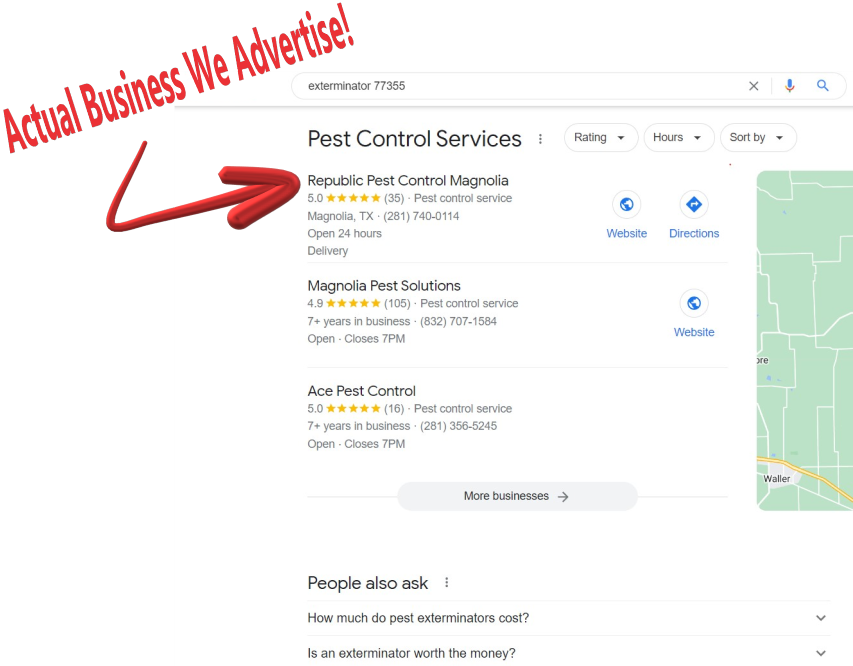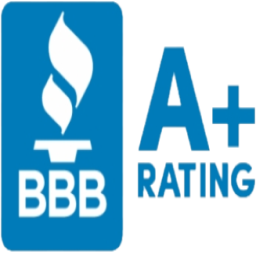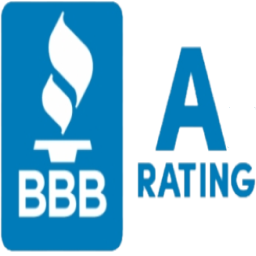When it comes to managing wastewater in areas like Magnolia, TX, septic systems are essential for homeowners who are not connected to municipal sewer lines. Choosing the right septic system is vital to ensure proper waste treatment and long-term system efficiency. In this guide, we’ll explore the most common types of septic systems used in Magnolia, including aerobic, conventional, alternative septic systems, holding tank systems, and mound septic systems.
1. Aerobic Septic System
An aerobic septic system is a popular choice for many households in Magnolia, TX. Unlike conventional systems, which rely on gravity and anaerobic bacteria to break down waste, aerobic systems use oxygen to enhance the breakdown process. This type of system requires an aerator, which pumps air into the tank to promote aerobic bacterial growth. These bacteria work faster and more efficiently, helping to reduce solids and create cleaner effluent.
Benefits of Aerobic Systems:
- Effective in areas with poor soil drainage.
- Produces cleaner effluent, reducing environmental impact.
- Ideal for smaller lots or properties with limited space for a traditional drain field.
However, aerobic systems do require regular maintenance and may have higher initial installation costs compared to conventional systems. The need for electricity to power the aerator can also increase operational costs. To learn more about aerobic septic systems, visit the detailed septic systems page.
2. Conventional Septic System
The conventional septic system is the most traditional and widely used septic system type in Magnolia, TX. It consists of a septic tank and a drain field (also called a leach field). Wastewater flows from the home into the septic tank, where solids settle at the bottom and liquid waste is filtered out to the drain field. The effluent is then absorbed and filtered by the soil.
Benefits of Conventional Systems:
- Cost-effective and easy to install.
- Requires minimal maintenance, mainly regular pumping of the tank.
- Best suited for areas with deep, well-draining soil.
However, conventional systems need to be installed in an area with appropriate soil conditions for effective treatment. They are not suitable for sites with high water tables or poor drainage.
For more insights on conventional septic systems, check out the full description here.
3. Alternative Septic Systems
Alternative septic systems are used in areas where conventional systems may not be suitable due to poor soil conditions or high water tables. These systems employ different treatment technologies to ensure that wastewater is properly treated before being released into the environment.
Some common types of alternative septic systems include:
- Sand filter systems: Wastewater is passed through a sand filter to remove solids and bacteria before being released.
- Constructed wetlands: These systems use natural plant systems to treat and filter wastewater.
- Recirculating sand filters: These systems circulate wastewater through sand filters multiple times to improve treatment efficiency.
Benefits of Alternative Systems:
- Effective in challenging soil and site conditions.
- Provides an environmentally friendly treatment option.
- Can be customized to fit specific site requirements.
However, alternative systems often come with a higher installation cost and may require more frequent maintenance and monitoring.
4. Holding Tank System
A holding tank system is a temporary solution for properties where a traditional septic system cannot be installed due to space constraints or environmental factors. In this system, wastewater is stored in a sealed tank and needs to be pumped out regularly to avoid overflow.
Benefits of Holding Tank Systems:
- Ideal for properties with limited space or unfavorable soil conditions.
- Can be used as a temporary solution until a more permanent system is installed.
While holding tanks can be effective for short-term use, they require frequent pumping and can be more costly in the long run due to the regular need for waste removal.
5. Mound Septic System
Mound septic systems are designed for properties with high water tables, shallow bedrock, or other site limitations that prevent the installation of a conventional drain field. These systems use a raised mound of soil to create a specialized drain field for wastewater treatment. The system includes a septic tank, a pump chamber, and a mound where effluent is filtered through the soil.
Benefits of Mound Septic Systems:
- Suitable for properties with poor or non-absorbent soils.
- Effective in areas with high water tables or shallow bedrock.
- Provides an effective alternative to traditional systems when site conditions are challenging.
However, mound systems require proper maintenance, including monitoring the soil for clogging and ensuring the pump is functioning correctly. The installation costs are also higher due to the need for a raised mound and more complex design.
Choosing the Right Septic System for Your Magnolia, TX Property
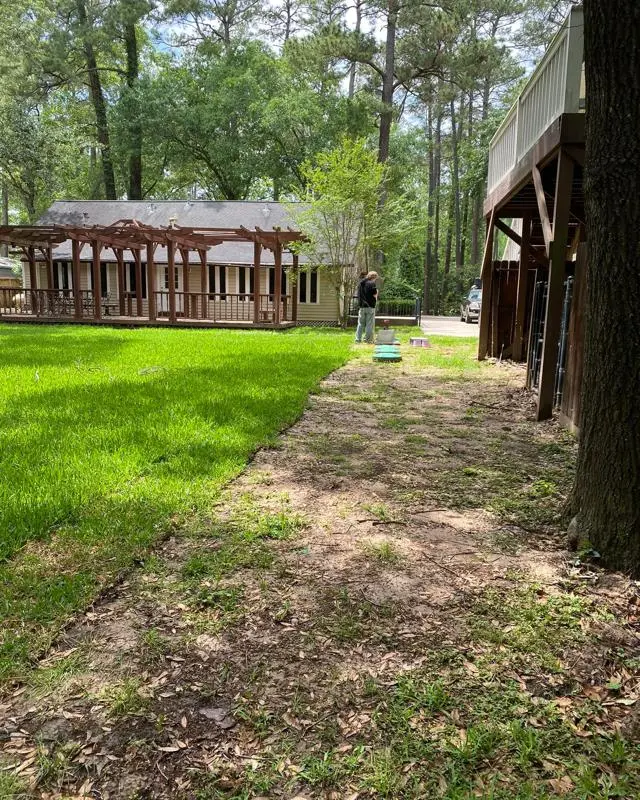
Choosing the appropriate septic system for your property in Magnolia depends on several factors, including soil conditions, available space, budget, and the level of maintenance you’re willing to commit to. It’s essential to work with a professional septic service company like Strictly Septic that can assess your site and recommend the best solution for your needs.
Before making your decision, consider the following:
- Soil conditions: Test the soil to ensure it can support the type of septic system you plan to install.
- Space availability: Ensure there is enough space for the system, including the tank, drain field, or mound.
- Budget: Some systems, like aerobic or alternative septic systems, may have higher upfront costs but could offer long-term benefits in certain conditions.
Regular Maintenance and Inspection
Regardless of the system you choose, regular maintenance and inspection are crucial to ensure the system remains in good working order. Neglecting maintenance can lead to costly repairs and premature system failure. At Strictly Septic Service, we offer comprehensive septic tank services, including installation, pumping, and maintenance to keep your system functioning efficiently for years to come.
Conclusion
Septic systems are a vital part of wastewater management for homes and businesses in Magnolia, TX. By understanding the different types of septic systems—whether it’s an aerobic, conventional, alternative, holding tank, or mound system—you can make an informed decision about which one is right for your property. Regular maintenance and professional service are key to ensuring the long-term effectiveness of your system. Reach out to Strictly Septic Service for expert advice and reliable septic services tailored to your needs.

